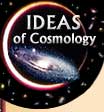
|
|
 |
Who
Was Tycho Brahe? |

|
|
|
Tycho
Brahe (1546-1601)
Born into the Danish nobility, Tycho traveled with a tutor to the universities of Europe and became interested in astronomy. He realized that he needed more accurate instruments and better observations to correct erroneous theories. Following the death of his father, Tycho inherited sufficient wealth to build some instruments and continue his interest in astronomy. He went on to become the most famous observational astronomer of the 16th century. Tycho became famous with the observation of a new star (a supernova) in 1572. The King of Denmark gave Tycho the island of Hveen, including rents and mandatory workdays from the farmers on the island. Tycho constructed an observatory and began accumulating new observations of unprecedented accuracy. From these data Johannes Kepler later would determine that the planetary orbits are elliptical, not circular. The old king died and Tycho fell out with the new king. He departed Hveen in 1597 with his household of two dozen persons and his instruments. Tycho wandered around Europe for over 2 years before ending up in Prague, under the generous patronage of Emperor Rudolph II of the Holy Roman Empire. There Tycho soon died. |
|
Copyright ©. Brought to you by the Center for History of Physics, a Division of the American Institute of Physics |
|
|||||